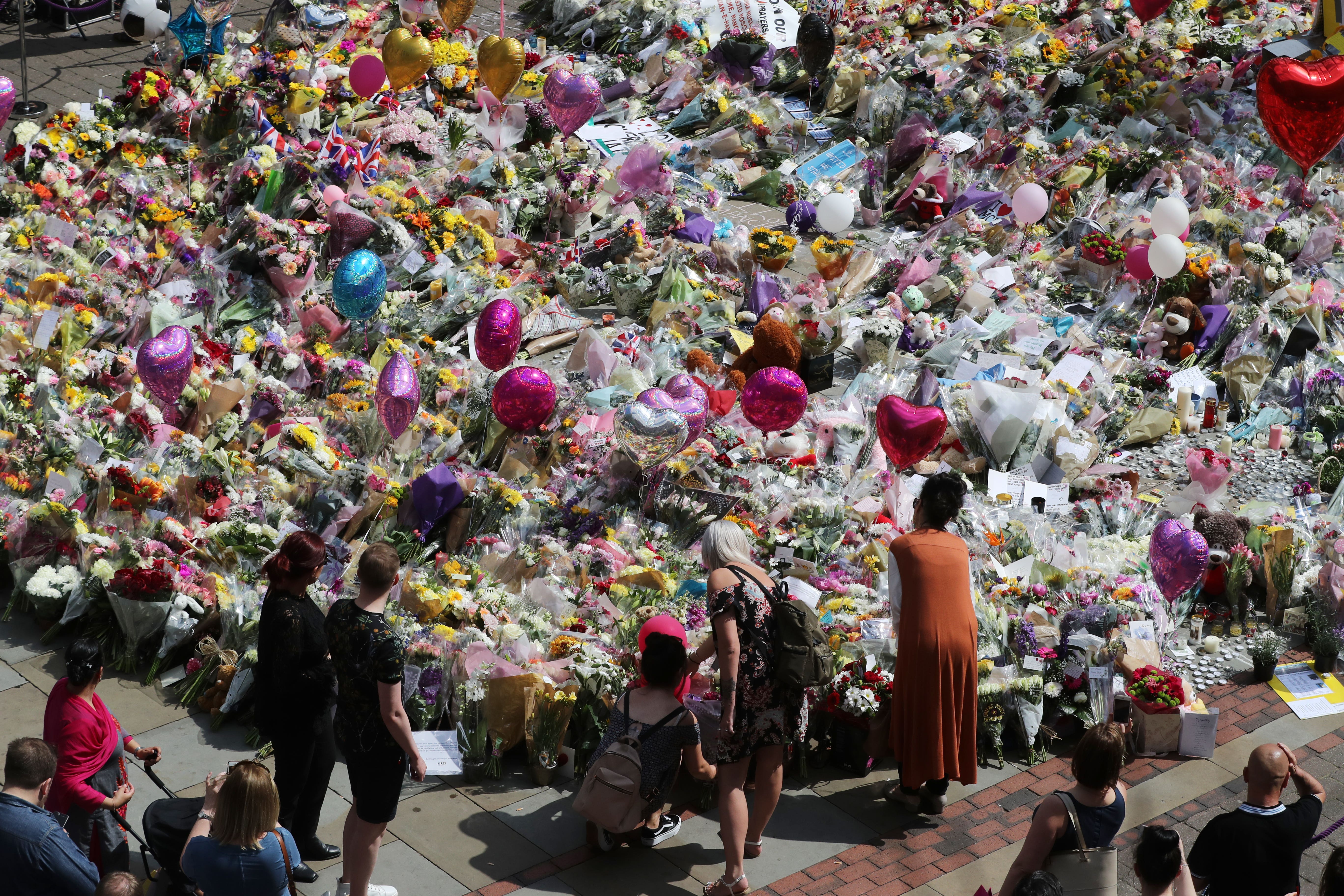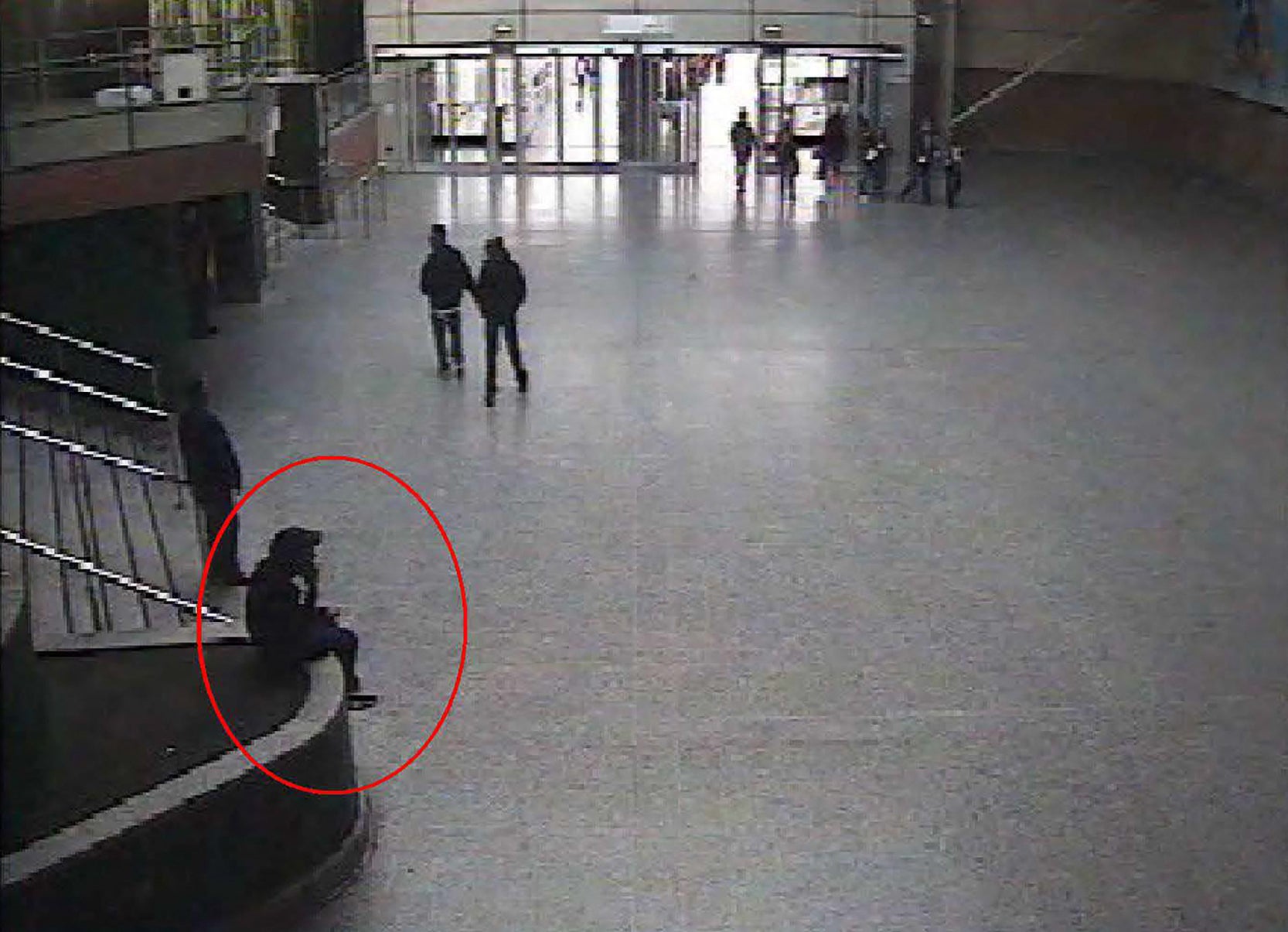New security laws prompted by Manchester Arena bombing ‘may not reduce threat of terror attacks’
The bill, known as ‘Martyn’s Law’, has been fought for by the mother of Manchester bombing victim Martyn Hett

Your support helps us to tell the story
From reproductive rights to climate change to Big Tech, The Independent is on the ground when the story is developing. Whether it's investigating the financials of Elon Musk's pro-Trump PAC or producing our latest documentary, 'The A Word', which shines a light on the American women fighting for reproductive rights, we know how important it is to parse out the facts from the messaging.
At such a critical moment in US history, we need reporters on the ground. Your donation allows us to keep sending journalists to speak to both sides of the story.
The Independent is trusted by Americans across the entire political spectrum. And unlike many other quality news outlets, we choose not to lock Americans out of our reporting and analysis with paywalls. We believe quality journalism should be available to everyone, paid for by those who can afford it.
Your support makes all the difference.New laws putting a legal duty on venues to increase security measures following the Manchester Arena bombing may not reduce the threat of terror attacks, MPs have said.
Parliament’s Home Affairs Committee found that the costs of implementing the Draft Terrorism (Protection of Premises) Bill could force village halls, restaurants and small businesses to close.
A report published on Thursday welcomed the government’s intention but raised concerns about proportionality and effectiveness, finding: “There is a lack of evidence that the risk of terrorist threat justifies the measures proposed for smaller premises, or that the bill will have any effect on reducing terrorist threats.
“The whole thrust of the draft bill seems to be aimed at bricks and mortar rather than the real target, which is a concentration of people or use of buildings by individuals or groups at higher risk of attack.”
The findings were released days after Suella Braverman warned that the terror threat to Britain was rising as attackers become “increasingly unpredictable” and harder to detect.
In a speech outlining the government’s new terrorism strategy, she backed the bill and vowed to “ensure public venues are better prepared and protected against terrorist attacks”.
The bill is also known as Martyn’s Law, named after Manchester victim Martyn Hett, following years of campaigning by his mother Figen Murray.
“Having lost my son to terrorism, along with so many others in the Manchester Arena attack, I find it hard to understand the argument that a few hours of training each year is a disproportionate step for businesses to take,” she said.
“Martyn’s law is a proportionate response that will keep millions of us safer and the government must now press ahead.”
It was backed by the chair of the Manchester Arena public inquiry, who called for the government to ensure a “high standard of protective security” for large venues and for “rigorous and robust enforcement”.
“Doing nothing is not an option,” Sir John Saunders said after finding numerous opportunities to prevent the attack or reduce the death toll were missed.
The draft bill would apply different standards to venues depending on their size, with a “standard duty” for public places with a capacity of between 100 and 800 people, and an “enhanced duty” for larger premises.
The standard duty includes terrorism protection training for employees and drawing up procedures for a terror attack.
Larger venues would have to appoint a designated senior officer, create a security plan, complete a terrorism risk assessment and apply “reasonably practicable” such as physical security to reduce any threat.
The law would create a duty on other staff controlling the venue to cooperate with the new officer, such as owners of shops inside a shopping centre, and the government plans to create a regulator to enforce compliance.
The Home Affairs Committee found that the current proposals would “place a significant and disproportionate burden on smaller venues while failing to ensure adequate safety measures at all public events at risk of terror attacks”.

Chair Dame Diana Johnson said the costs “could place the very future of some smaller businesses and voluntary organisations at risk”, when many are already struggling with the cost of living and energy bills.
“We must do all we can to ensure venues are equipped to react to terror threats, but the government must ensure that the steps they need to take are based on an accurate assessment of risk and not arbitrary capacity figures,” she added.
“We are concerned that this bill as currently drafted would fail to make a significant impact in preventing or mitigating the effects of terrorism.
“For example, in its current form, a local village hall would be required to carry out safety precautions while a city centre open-air farmers market or Christmas market would not. This makes little sense and takes no account of the actual terrorist threat.”
The committee said it had received evidence suggesting that the measures would “not have made a significant difference” in several recent UK terror attacks, which have included outdoor knife and vehicle rampages.

MPs called for the government to first impose the duty on large venues only, and review the impact before extending it.
They questioned why the law does not cover outdoor events and gatherings, and said first aid training should be included as the Manchester Arena inquiry had shown it could “be the difference between life and death”.
Nick Aldworth, who led the “protect and prepare” strand of national counter-terrorism policing until his retirement in 2019, said the Home Affairs Committee’s conclusion did not “reflect the universal and unpredictable nature of the terrorist threat”.
He warned that confining the duty to large venues could “signpost terrorists to smaller locations and increase the risk to them”.
“At a time when we are seeing terrorists shift their focus to these kinds of venues as soft targets, nowhere is without exposure to terrorism,” Mr Aldworth added.
“The government should take their point seriously on including outdoor venues, but their wider arguments are not only wrong but dangerous.“
The Home Office said the law had been developed following extensive public consultation and that it was committed to improving security at public venues.
“We will carefully review the recommendations of the report and we are committed to introducing the bill as soon as parliamentary time allows,” a spokesperson added.



Join our commenting forum
Join thought-provoking conversations, follow other Independent readers and see their replies
Comments